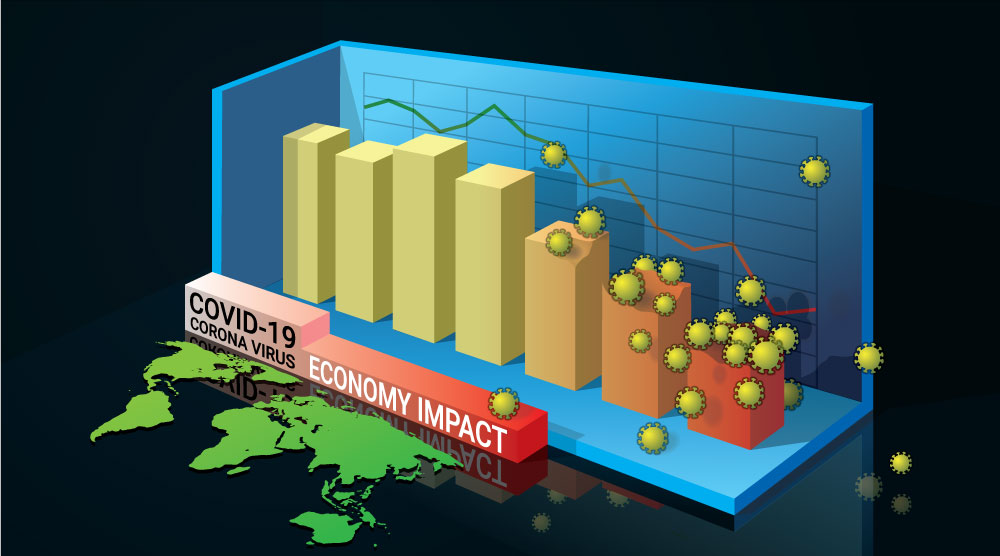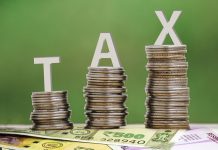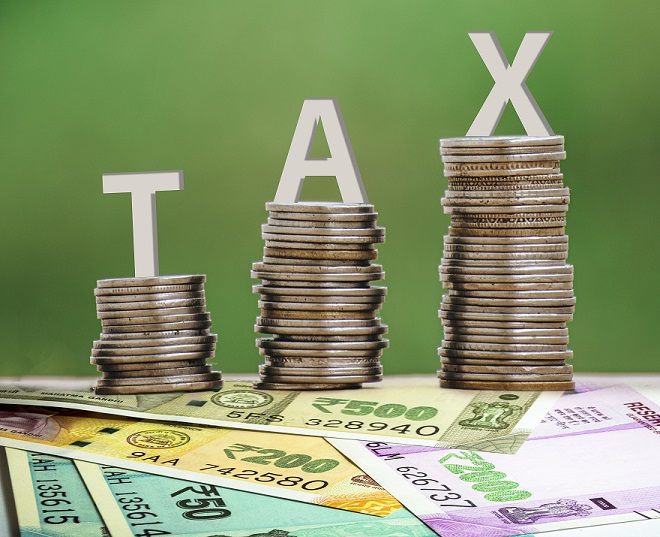
Exclusively for Geojit clients, Prashant Jain, ED and CIO, HDFC MF held a concall. Here is what he spoke on about the impact of Covid-19 on the markets and the economy, what to expect and his advice to investors.
What is the impact of Covid on the economy and how you look at it?
Lockdown clearly impacts the economy both in India and abroad. An economy is like a wheel with many spokes in it. When an economic activity takes place, its effect and benefits gets distributed in multiple ways. In a scenario like this when the discretionary spending by people goes down, we can expect a meaningful impact on wages of a large number of employees, especially of those in the Services sector. 60% of India’s GDP come from services and 40% of employment is provided by services segment which means roughly half of the population earns its wages from services. The challenge is, people in the bottom 50% of the income pyramid have a share of 15% of the GDP.
Another cultural change that has taken place in India over the last 20 to 30 odd years is that we have moved from savings culture to EMI driven culture. Therefore I think the savings rate in the lower-income households have come down quite sharply. Hence income drop on one hand without much savings on another, will significantly hurt them, during times like this. Post lockdown and given the lower demand environment, business will try to save on costs and hence I feel the pressure on wages would stay for some time. When things eventually turn to normal, still people will be very cautious and try to save a bit more than what they have been doing in the last 10 or 20 years. I am told that in China, millennials saved for the first time after Covid. Therefore I feel because of the impact on wages, uncertainty and the difficulty of experience caused, the impact on consumption will be slightly more prolonged even after the lockdown is lifted.
What you think would be the impact of oil price drop on the Indian economy. How do you look at the Indian export and imports getting affected due to Covid?
Oil prices have come down sharply. In a situation like this, in a way, we are blessed to be in India than elsewhere in the world. Let me explain why. Many of the emerging market countries are large exporters either of oil or of other goods. When the western economies will experience severe downturn, and on the other hand oil prices have already collapsed, imagine the status of countries exporting oil or if their economy is dependent on exporting of large manufacturing goods. The downturn in the GDP is going to be very significant. India fortunately is an importer of oil and we are also an importer of consumer discretionary. Last year we imported US$80 Bi worth of oil (at US$65/bl), US$60 Bi worth of electronics and US$30 Bi worth of Gold. Now oil prices are down by more than half. Let us assume if it averages here (at US$30-US$35/bl), we save about US$40 Bi. With regards to electronic imports, it’s reasonable to assume that people may refrain from making new purchases in this environment and push themselves to make use of the existing ones, hence there could be a drop of 30-40% of imports. Gold imports might drop as well along with other imports. So net-net in some of these import categories India stands to gain anywhere between US$80 Bi – US$100 Bi. On the negative side our exports (which stands at around US$300 Bi) and remittances will also degrow. But the export degrowth should be relatively less as our basket of exports consists most of basic goods and not consumer discretionary. Hence India as a country, surprisingly, stands to benefit in the post-Covid world at least in terms of its Balance of Payments. It is also possible that India’s Trade deficit could be zero after almost 17-18 years. To summarize, as a country while growth will slow down sharply this year and consumption will remain impacted for some time, I feel as a country in terms of Balance of Payments we are well placed and better off. The recent fall in the value of rupee is majorly because of highest ever selling in a single month by FIIs (in both Equity and Debt together). But if you notice, the fall in rupee has been the lowest among Emerging markets.
How Indian economy would benefit from the manufacturing shift from China?
This is another significant factor why India will benefit from the Covid related disruptions. China has grown very rapidly in the last 10 years and the wages in China had also grown and it is now 1.5 to 2 times the wages in other Asian countries. Since the cost in China is becoming higher, the manufacturing has slowly started moving out of China to other Asian countries. To attract these investments, India had already cut its tax rates 2-3 quarters back – for new manufacturing units to 15%. Due to the origin and the impact created by Covid, many multinationals and large companies of the world, with a great sense of urgency, want to derisk and reduce their over-dependence on China and to diversify their manufacturing bases. Japan has given incentives to its companies for relocating the manufacturing facilities back to Japan. India with its many advantages of low-cost man power and in large availability, skilled man power, rich natural resources, large domestic market and very low and competitive tax rates, we stand to benefit a lot from this shift. These benefits would play out not in 1 or 2 quarters, but in 2, 5, 10 years with a lasting advantage. This will give India a second chance to get back into manufacturing and to alleviate the criticism that we missed the entire manufacturing cycle by moving straight from agriculture to services. This is a very good chance for making a good comeback and earn our rightful place in the manufacturing segment.
Your views on the government’s stimulus package and the economic impact?
Lockdown and the disruption it had caused on the economy will have a meaningful impact on the government’s fiscal deficit with drop in direct tax and corporate tax collections. Government has announced measures to support the low-income, low-wage population and they are also expected to do some more economic stimulus in the coming days which will further impact fiscal deficit. My rough calculation suggest that we could lose about 2% of GDP equivalent of revenues. But this should not be considered a serious issue in a year like this.
Why markets were moving up despite slowdown fear and near term economic weakness?
Answer to that is partially there in the question itself. The whole market knows the immediate outcome. When faced with events like this, where everyone is in a state of shock, there is forced selling across, so markets typically over react. But as time goes by, investors start focusing on 6 months, 1 year, 3 years outlook and that is why I think markets are moving up. It is the nature of the markets to be forward looking. We have seen this time and again, that markets bottom out typically ahead of the worst results, when they are anticipated. If the actual results comes as a shock then markets may fall after results. But clearly now everyone knows the status of the economy, so I think markets by and large is quite prepared for a very weak first quarter. By the way markets now in India are at 50% Market Cap to GDP and only thrice in the last 30 years have markets traded at these levels. The valuation are so cheap now.
The long term equity returns are very low now (10 Year Nifty return is around 7%). Do you think equities are still a good asset class? Can we have faith in equities?
These are correct observations. So when in 10 years Nifty has delivered 7%, some people may think equity is not a good asset class. But that is a wrong way to look at equities. If your Nifty returns in the last 10 years is 7%, what does it tell us? Now our GDP growth in the last 10 years is between 12-14% in rupee terms but Nifty has grown 7%, it means Nifty is much cheap relative to the economy and that is showing up in the market cap to GDP ratio. Longer term equities give 12-14% return in a normal GDP growth, but because of Covid our markets have fallen so much that the market cap to GDP is near all-time lows, that our 10 year Nifty return are 7% and this will normalize. Whenever this normalizes, the returns have to make up for the returns-gap + the future GDP growth. Whenever the last 10 years of Nifty are low (like it happened in 2002 and 2008), if one had invested, the returns over the next 3, 5, 10 years were very handsome and these were the best times to invest. I think the best returns in equity are made from investments made during the difficult times of the market. Covid has presented us with a very difficult economic environment but a great investing environment for someone who has surplus liquidity. My advice is, this is not the time to think short term, not to be fearful on equity. You get opportunities like these 3 or 4 times in a lifetime. We should not miss on this opportunity. Whatever is the portion of our surplus capital we can invest that in 2 or 3 rounds. One round we can invest now, second round we can invest after 2 or 3 weeks and the third round we can invest once our country starts winning the war against Covid, once the curve is flattened, lockdown is being lifted, when the life slowly comes back to normalcy.
Which type of funds one should look at during times like these and how much should be the allocation in them?
I would suggest to keep bulk of your investments in large caps as they stand to recover first and in multicaps. You could invest maybe 20-30% in mid and small caps also, depending on the risk appetite.
If you are doing SIPs, you should double your SIP amount as this is a very good opportunity.
Note: The values or the figures are as per the concall as of Apr-2020.











WOW WONDERFUL OUT LOOK WITH ANALYTICAL DIFFERENTIATION.
THANKS MR PRASHANT.